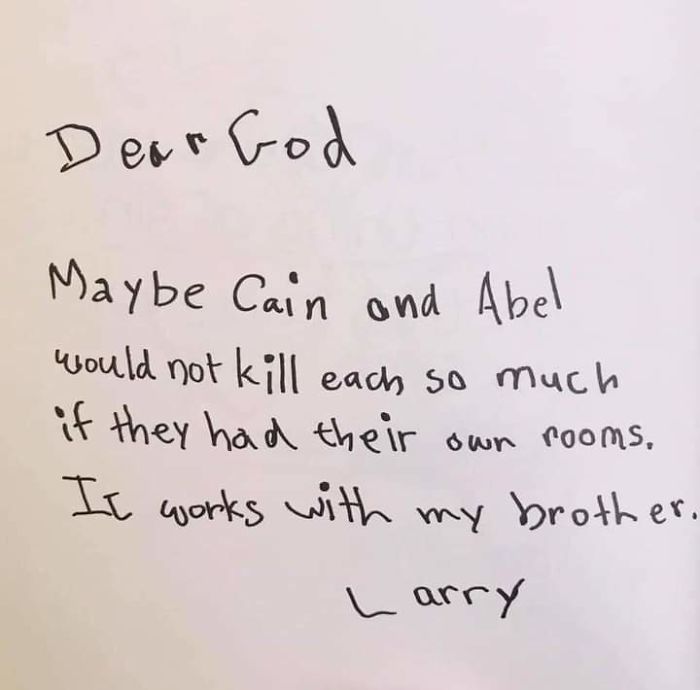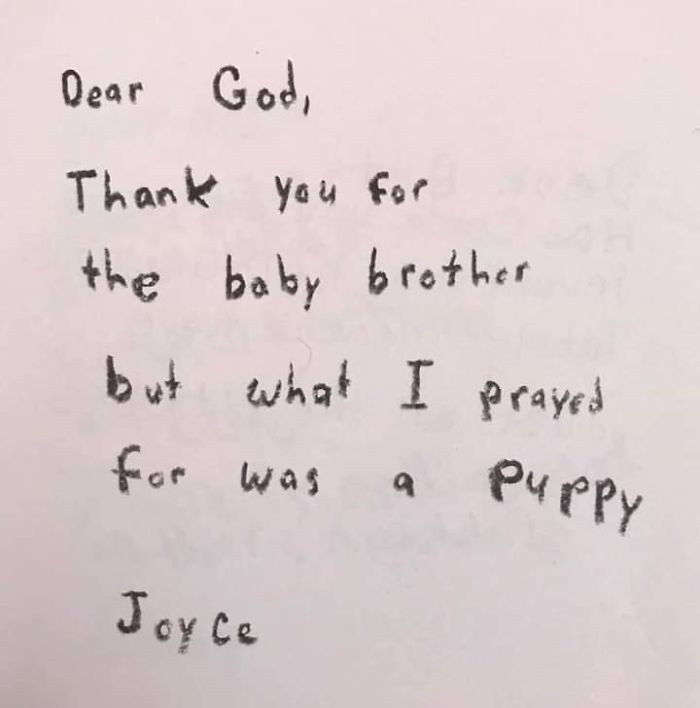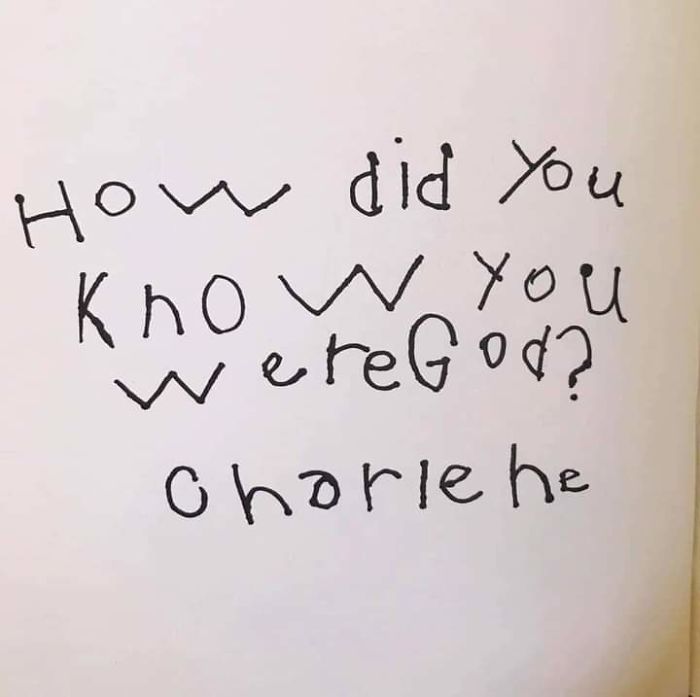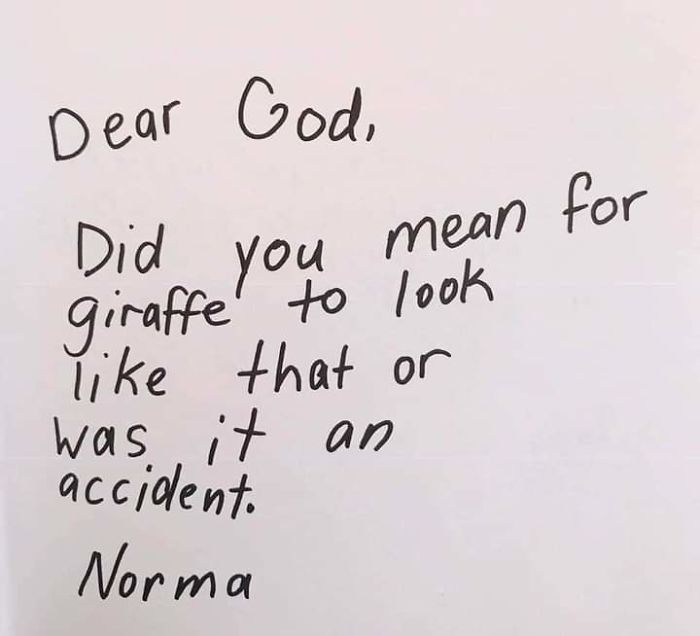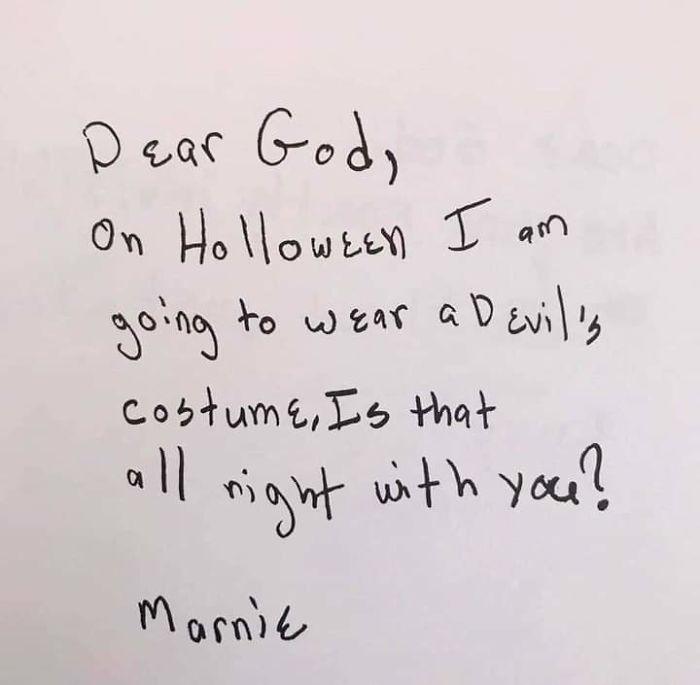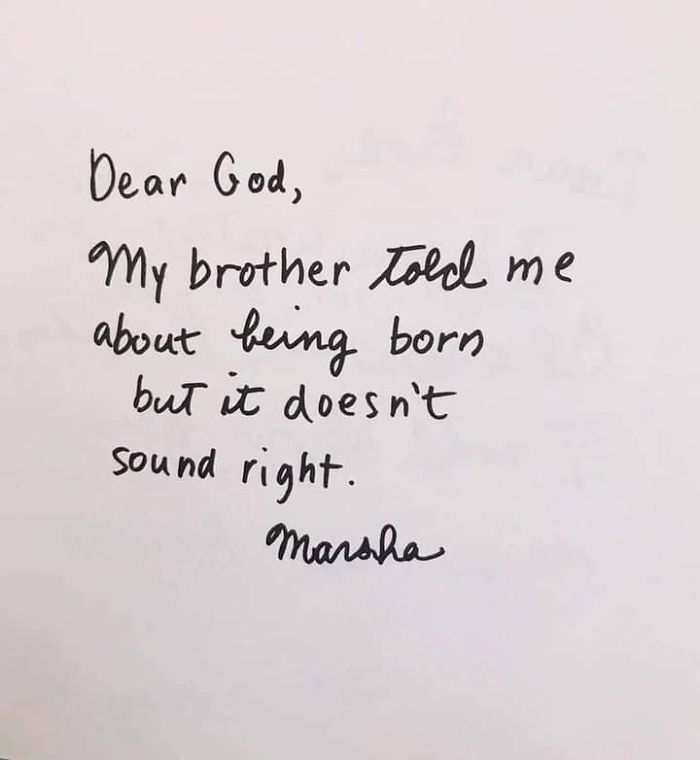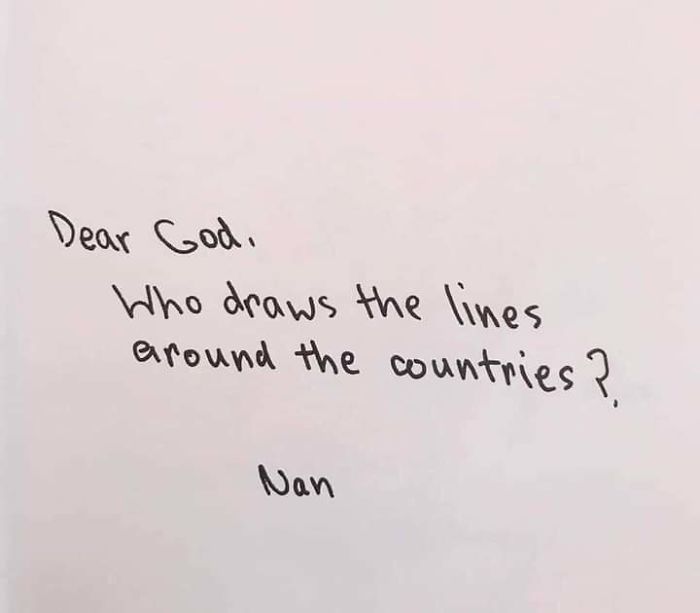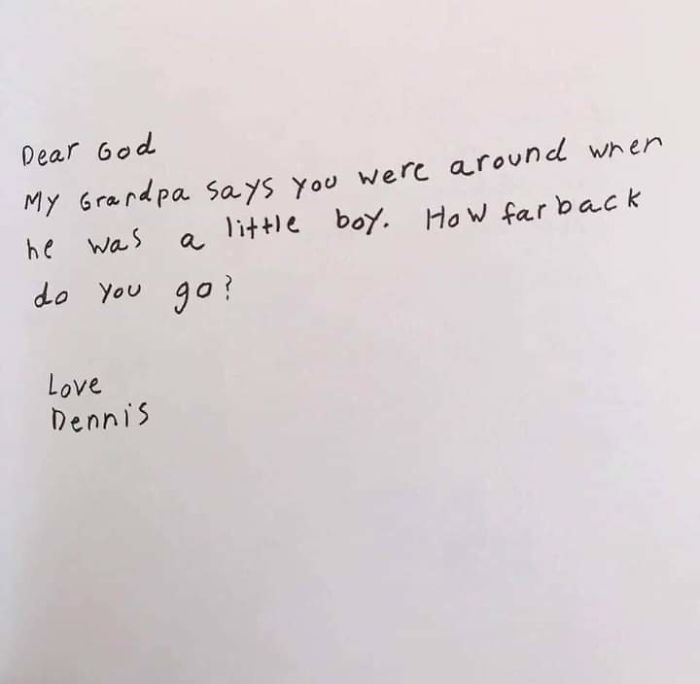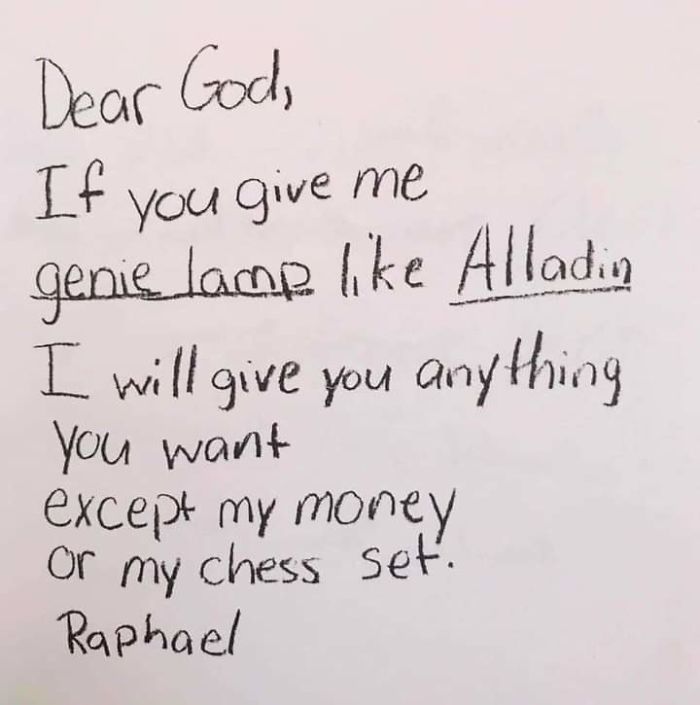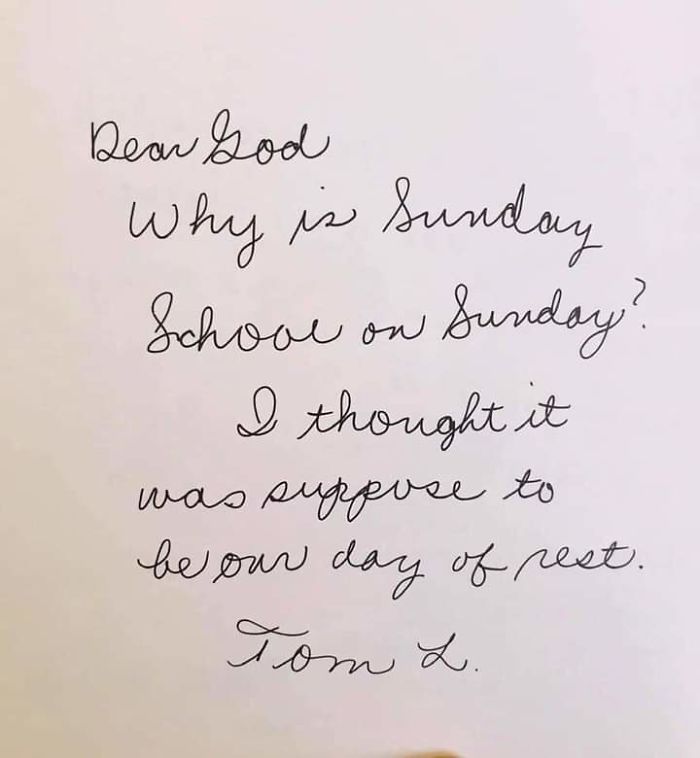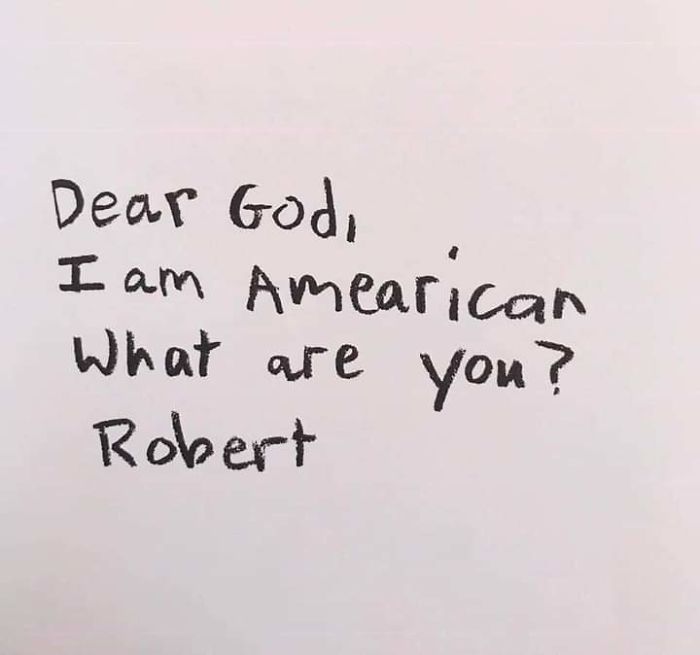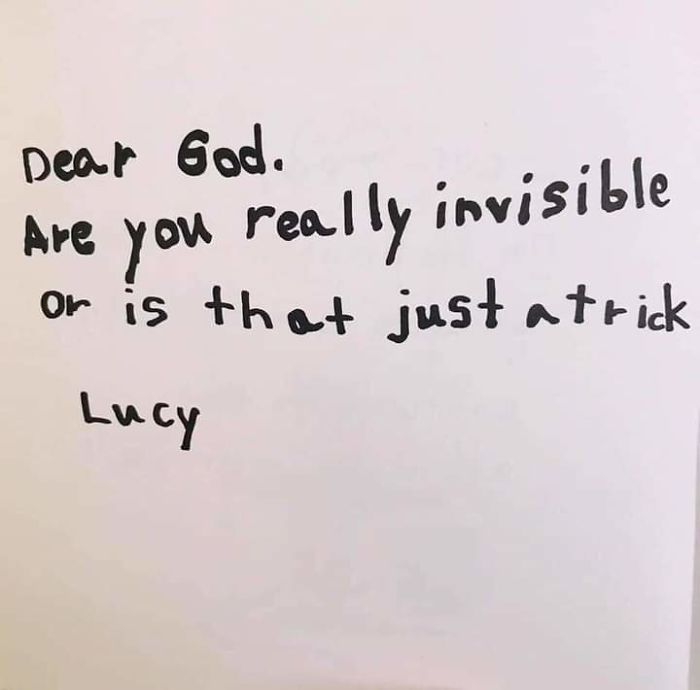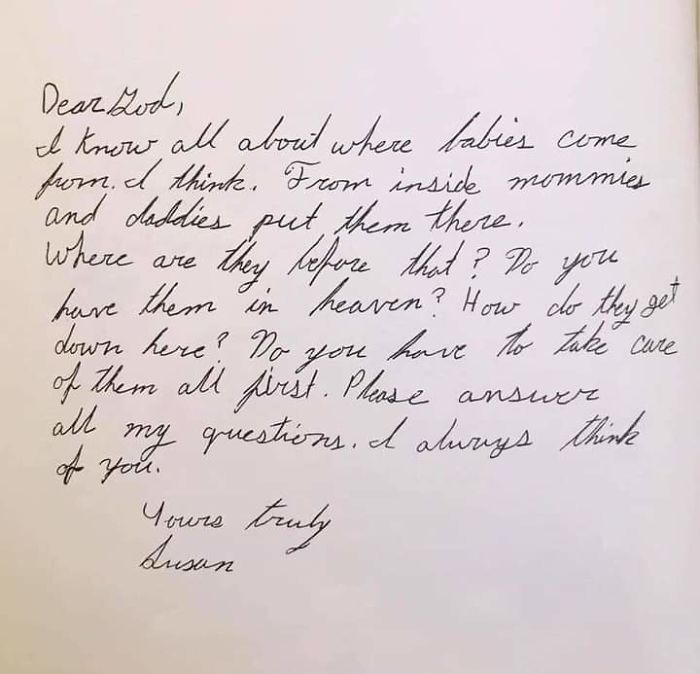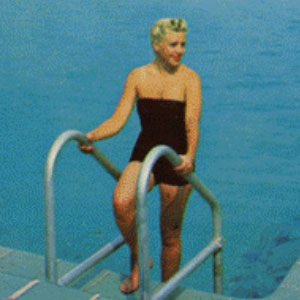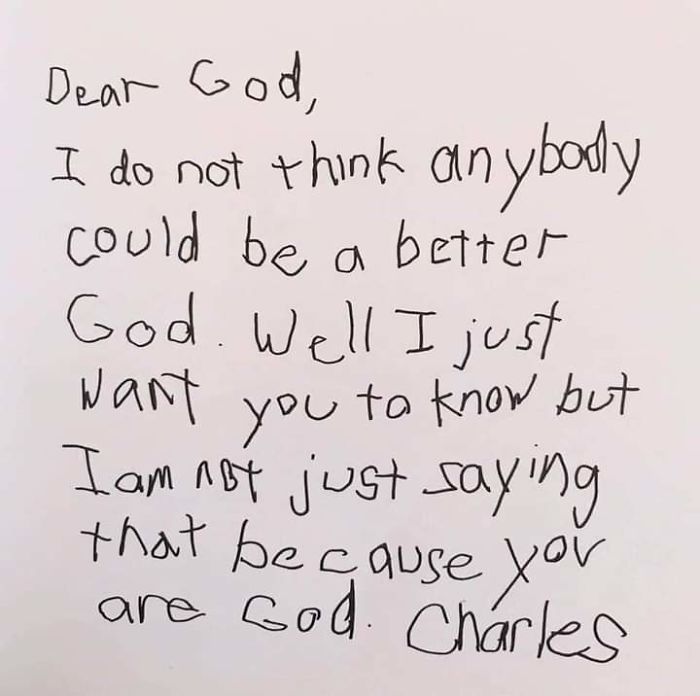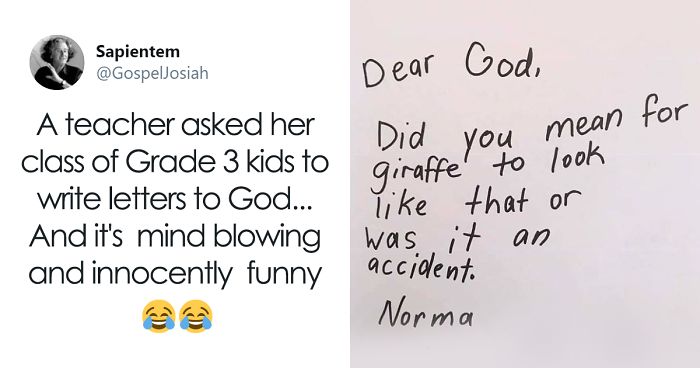
207Kviews
Teacher Has Her 3rd Grade Students Asking Questions To God And Their Letters Are Beautifully Innocent
Jean Piaget, the Swiss pioneer of child development, thought that children were incapable of having a true concept of God; they just thought of him as a supersized, magical version of their parents. More recent studies have expanded on this, showing that significant differences detected between younger and older children support the view that children under 10 or 11 years of age are unable to formulate an abstract conceptual framework demanded for an adequate concept of God.
Recently, a 3rd-grade teacher proved this by asking her students to write a letter to God. The little ones penned hilariously innocent messages, putting their naive notion of the supreme being on full display.
The letters probably would have gone under the radar but Twitter user @GospelJosiah somehow obtained and shared them with the rest of the Internet.

This post may include affiliate links.
Gospel Josiah, a content writer, public relations expert and an investigative journalist, got hold of these letters after a friend of his in the United States thought he'd love them and sent them to him. "I was fascinated by the minds of the kids," Gospel Josiah told Bored Panda. "Like, how can kids of the age be so critical and succinct about their wishes. It was amazing from the first to the last letter. I had no option than to share it to everyone on my social media platforms."
"A lot of people are enthralled by the minds and confidence of the kids. Some see it as a way to learn and ask new questions about their beliefs while some others just love the cuteness if the hearts and handwritings of the kids."
Gospel Josiah said most of his threads go viral because each of them — whether written by him or someone else —resonates around his critical thinking and practical analysis of life.
Puppy, baby brother. What's the difference? You can teach them both how to fetch.
One of the most controversial works in modern religious education is that of Goldman who assessed the general "readiness" of children to acquire certain religious concepts by having children respond to his Picture and Story Religious Test. The test consists of three pictures and three Bible stories.
The results were similar to the ones we mentioned previously. "The significance of Goldman's stage delineation lies in its application to religious education," W. Chad Nye and Jerry Carlson explained. "He suggested that children should not receive formal Bible instruction before 10 or 11 years of age." This position was defended with the argument that religious thinking is formed at a very abstract level and beyond the young child's developmental ability.
that is pure adorable! there's a song that says God placed the stars in the sky and knows them by name so i used to ask the stars what their names were and then be sad that they didnt answer me!! i was weird!!!
Good question. I'm sure we all know a few who just have a "business" relationship
Yes Neil bc God is Love so His House is Love and That's Why you Kiss, Love.
It Says, Dear God, My Brother Is A Rat. You Should Give Him A Tail. Ha Ha. -Danny
This is horrible if it's a public school, and if it's truly as simplistic as the story implies. How could a teacher think it's appropriate to indoctrinate kids into his/her religion???
Unfortunately, these are ALL hand written by adults trying to write like children. Why not just type them out? Also, no idea why there is a big controversy here about kids writing to God. Let kids talk to God, who cares, it doesn't mean these kids are "religious"
A comment from above said these are from the 1960s I don't know how true this is but kids can have good handwriting
Load More Replies...This is horrible if it's a public school, and if it's truly as simplistic as the story implies. How could a teacher think it's appropriate to indoctrinate kids into his/her religion???
Unfortunately, these are ALL hand written by adults trying to write like children. Why not just type them out? Also, no idea why there is a big controversy here about kids writing to God. Let kids talk to God, who cares, it doesn't mean these kids are "religious"
A comment from above said these are from the 1960s I don't know how true this is but kids can have good handwriting
Load More Replies...

